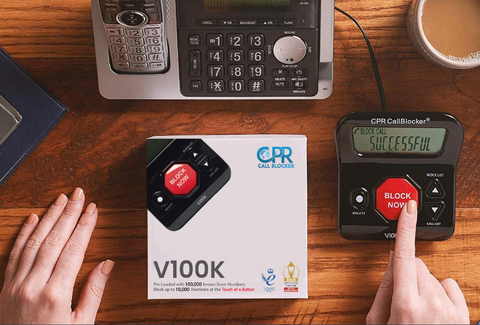Scammers trick you into thinking you've won the lottery this holiday season. It's also a time when they'll try to get you to pay for medical bills and life insurance. Here are some of the more common types of scam calls.
1. Utility Scam Calls
Utility companies typically have contingency plans to reestablish service quickly after storms. However, scammers may pose as utility-company employees and ask for your bank account information when you are most vulnerable—such as during a power outage caused by severe weather.
Calling you to tell you about a glitch in their system and demanding personal information from you is a lie. They are trying to get money from you by threatening that they will turn off your utilities if they receive the payment after some time.

2. Bank Scam Calls
Scammers often impersonate bank officials or law enforcement officers and call people to warn them about fraud in their accounts. As the conversation progresses, these criminals request sensitive information from unsuspecting listeners, such as account numbers and passwords.
If you receive a call from someone who asks for personal information, do not share it. Instead, hang up the phone immediately—or better yet: don't answer. Then, contact your financial institution directly. Do not call any number given to you by an unknown individual. Always use the local branch's listed telephone number.
3. Fake Charity Scam Calls
After a tragedy like a natural disaster, charity fraud is common. These criminals rely on the willingness of individuals to help those in need and exploit this goodwill for personal gain.
To avoid giving money to criminals, do not give money to unsolicited calls for contributions. Instead, use sites such as Charity Navigator and Guidestar to find a respected charity.
4. Insurance, Health Care & Debt Scam Calls
In numerous phone scams, con artists pretend to sell vehicle warranties, offer loans for debt consolidation or verify health insurance information. It is advised that you avoid making purchases over the phone unless you are placing them yourself.

Beware of anyone who offers to consolidate your debts by providing you with health insurance. That person may be trying to collect information for identity theft purposes.
5. Lottery Scams
Only believe it if you get a call saying they chose you randomly to win a foreign lottery. The caller will typically assert that to receive your winnings, taxes or the government must pay off other fees—so their statement is not valid.
6. Boiler Room Phone Scams
These phone scams promise investors a significant return, causing them to lose money. You get an unexpected call from someone offering you the chance to make a lot of money investing—usually with minimal risk involved.
Many people are conned into giving up large sums of money because they need to check whether the company selling them an investment is licensed by the Financial Conduct Authority (FCA).
7. Pension Scam Calls
In the past year, reports of pension fraud have increased significantly as con artists pose as legitimate financial firms to lure people into investing their money. Since 2015, pension freedoms—a new law that allows everyone over 55 to access their retirement funds earlier—have made this kind of scam easier for criminals to pull off.

8. Technical Support Scam Calls
The scammer poses as an employee of a well-known company, like Microsoft or Apple, and says they have detected a problem with your computer. The scammer will instruct the victim to take specific actions, unknowingly installing malware that gives them remote access or facilitates a system takeover.
Scammers use your personal information to steal from you or install ransomware that encrypts files and demands a ransom before unlocking them. They often target the elderly because those people may be more receptive than younger individuals to phone calls claiming to come from Microsoft.
Microsoft and other technology companies do not call you to offer free help with your computer or Internet connection.
9. Energy Price Cap Scam Calls
Households affected by a recent increase in energy prices are targeted by con artists who disguise themselves as utility companies. The thieves claim that additional grants—including ones worth more than the government's £400 cap offer—are available and promise refunds if the recipient shares their banking information.

10. Fake Gift Card Offers
Scammers know that many people like getting something for nothing. For example, they may hide their identities behind reputable companies (such as Amazon) and present themselves as offering customers a gift card. But in fact, it's just another way to try to get your money.
Always purchase gift cards from reputable merchants, and ask them to scan the card when you buy it.
Conclusion
It can be difficult to recover your money if you are the victim of an attempted or successful scam this holiday season. You should file a police report and inform your bank about what happened.

A call blocker device is strongly recommended to block spam calls. Our call blockers are meant to keep you and your family safe from unwanted phone calls and give you peace of mind at home. See our products or contact us so we can help you.











